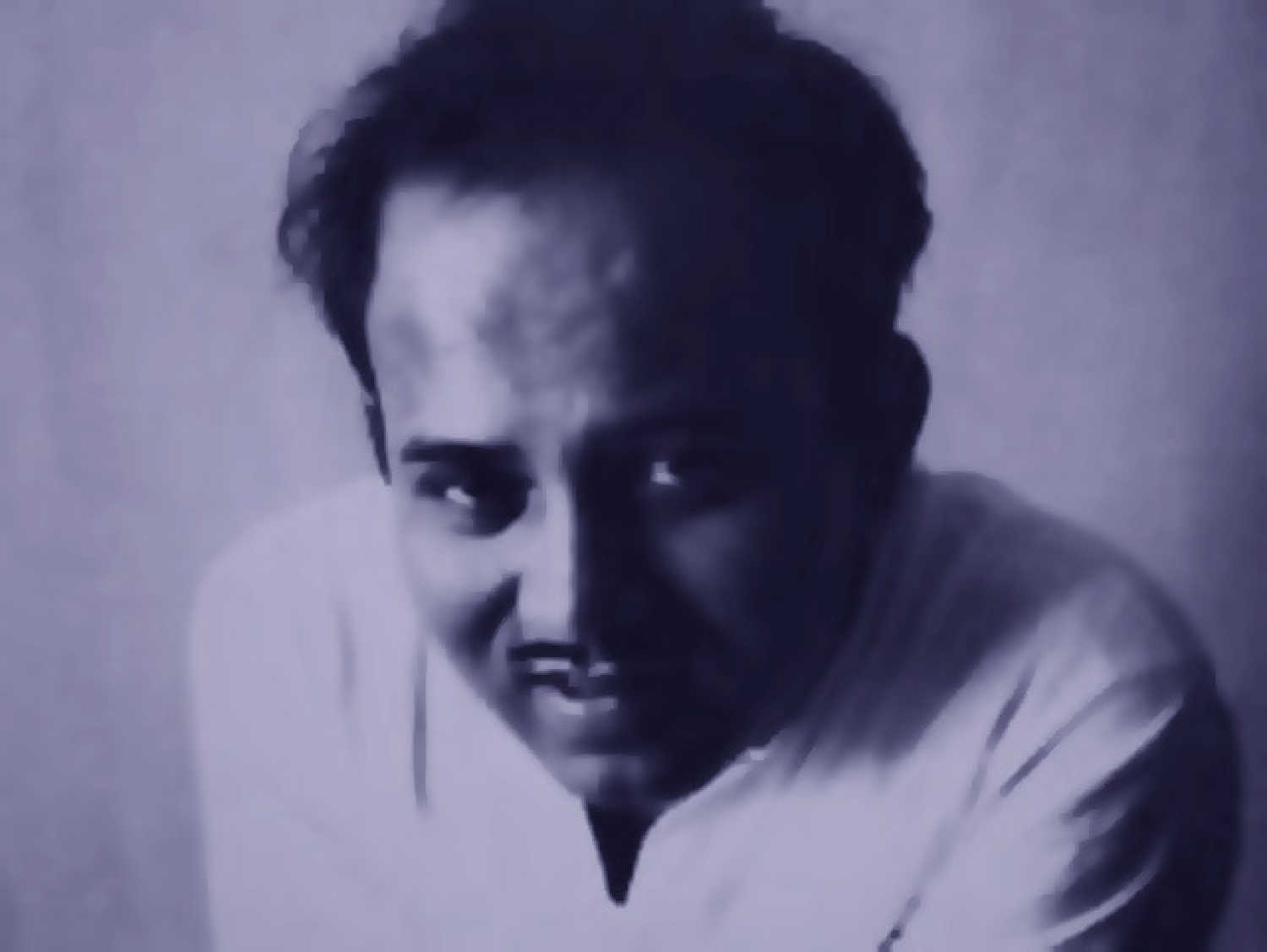The director of Sahib Bibi Aur Ghulam worked with Guru Dutt on some of his most important films, including Pyaasa and Kaagaz Ke Phool. But if it weren't for Abrar Alvi's heartbreak, he might never have found employment with one of the most poetic directors of Indian cinema.
How writing love letters helped Abrar Alvi land Guru Dutt's films
Mumbai - 01 Jul 2016 17:45 IST
Updated : 23:14 IST


Shriram Iyengar
Abrar Alvi's career remained forever in the shadow of his friend, Guru Dutt. The writer was an integral member of the core team of Guru Dutt's productions and worked on films like Aar Paar (1954), Mr & Mrs 55 (1955), Pyaasa (1957), and Kaagaz Ke Phool (1959). So inseparable were they that Alvi's directorial debut Sahib, Bibi Aur Ghulam (1961) was rumoured to have been ghost directed by Guru Dutt. This is an insult to both friends. Abrar Alvi was one of the most talented writers of his generation, and his friendship with one of India's best directors began for the most unlikely reason – Alvi's ability to write love letters.
In Sathya Saran's book 'Ten Years With Guru Dutt: Abrar Alvi's Journey', the writer described his experiences with Dutt as being whimsical, passionate and educating. Alvi first arrived in Bombay as an ambitious playwright. Having found no employment for several months, he accompanied his cousin to watch a shoot at Dutt's Natraj Studios. While he was waiting, he spotted Raj Khosla and Guru Dutt having an argument about the nature of the dialogue in the film.
As Dutt left, Raj Khosla turned to the quiet Alvi in the corner and asked him his opinion. Alvi suggested that a person from the street would never speak the chaste Urdu lines that Khosla had written. Unknown to him, Dutt was hearing this conversation and took note of him.

There are few directors in Indian cinema who have tapped into the pathos and singular loneliness of the lover like Guru Dutt. Incidentally, Alvi too suffered the same pathos and heartbreak which led him to writing. As described in Sathya Saran's book, his temperament in school and college was far from that of the mature writer we come across in films.
Alvi was known to be a bully and often got into fights. It was only after his introduction to literature that he sobered down. He was soon participating in elocution competitions and writing plays for the Young Men's Christian Association at his college. "I soon became a fine orator and began to take part in plays," he said.
It was while discovering a new heroine for his play that Alvi fell in love for the first time. To woo his lady love, the writer turned to his greatest strength, words. His letters, though impressive, failed to further his cause.
However, Alvi could never bring himself to throw them away and kept a file full of them. Such was his prowess that his friends would often turn to him when they needed to send out a love letter. Thus it was that Abrar Alvi honed his skills at writing couplets and romantic lines.
Immediately after Guru Dutt spotted him, he invited Alvi to his residence to work on a scene. Though he had no interest in films, Alvi decided to help the director as a favour. The scene was a romantic one, and suddenly Alvi's experience of writing love letters found the perfect culmination. Soon, one script turned into many, as the writer and director found each to be the perfect intellectual partner. Their collaboration resulted in films like Pyaasa, Chaudhvin Ka Chand and Kaagaz Ke Phool, all of which explore facets of unrequited love that remain unique in their depiction and narration.

Incidentally, Alvi was also crucial to naming one of the most memorable characters of Guru Dutt's Pyaasa. Waheeda Rehman's character was named Gulaabo, in the memory of a prostitute that the writer met during his research for the film. It was this sensitive side of the writer that attracted Guru Dutt to him. In fact, Alvi was supposed to be working at Guru Dutt's home on the day of the director's death. It was chance that Alvi decided to head home for the night, leaving Guru Dutt alone. It brought an end to one of the most successful writer-director teams in Indian cinema.
Alvi would go on to write scripts and dialogues for films like Professor (1962), Laila Majnu (1976), and Bairaag (1976), among others. But he would never have found success if it were not for his experience in writing love letters in college.



